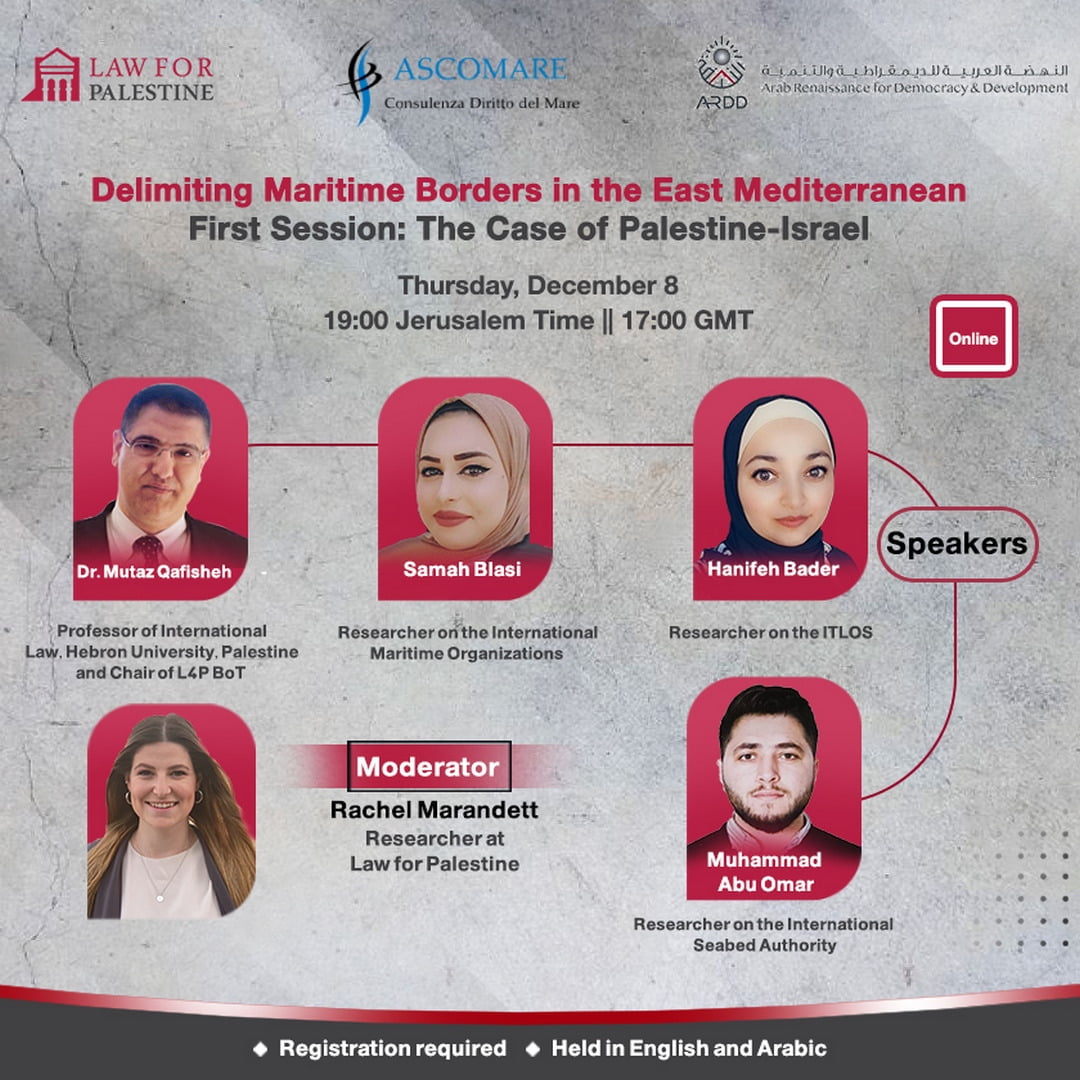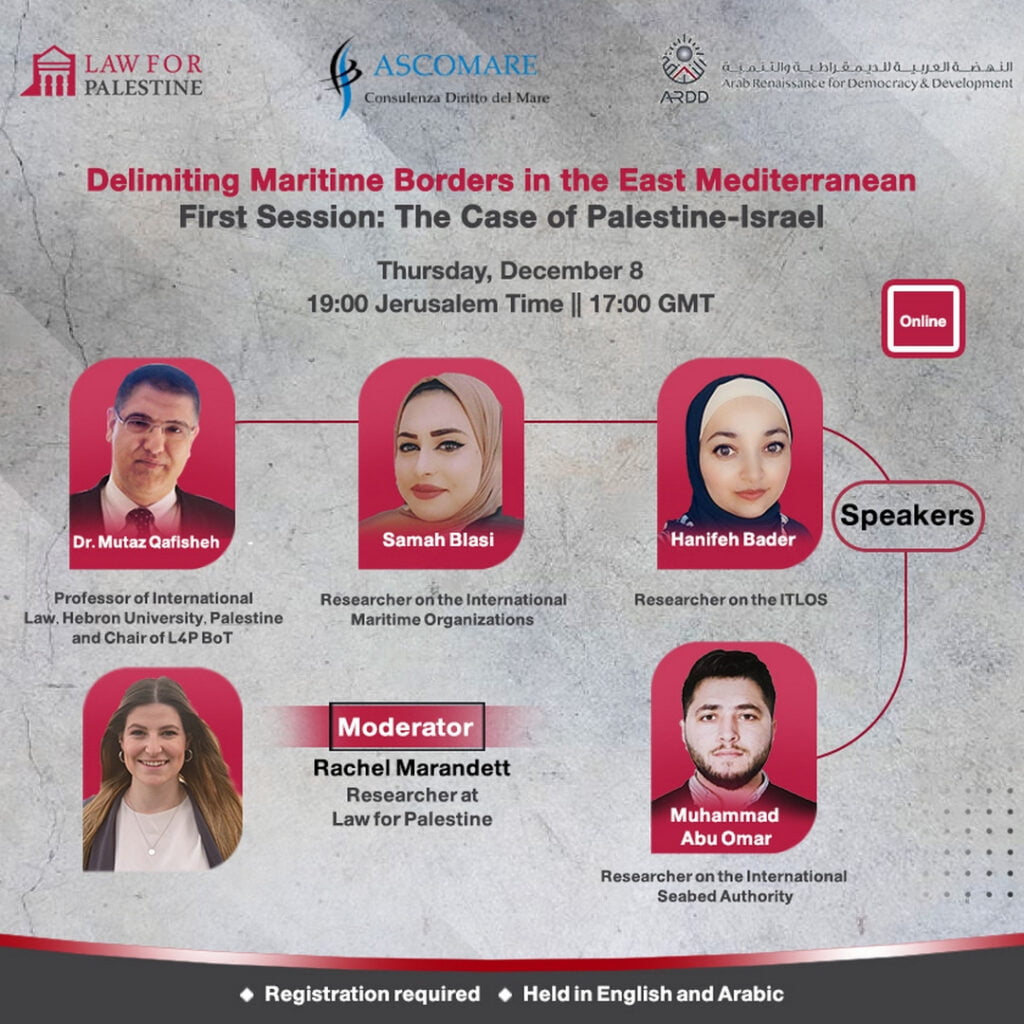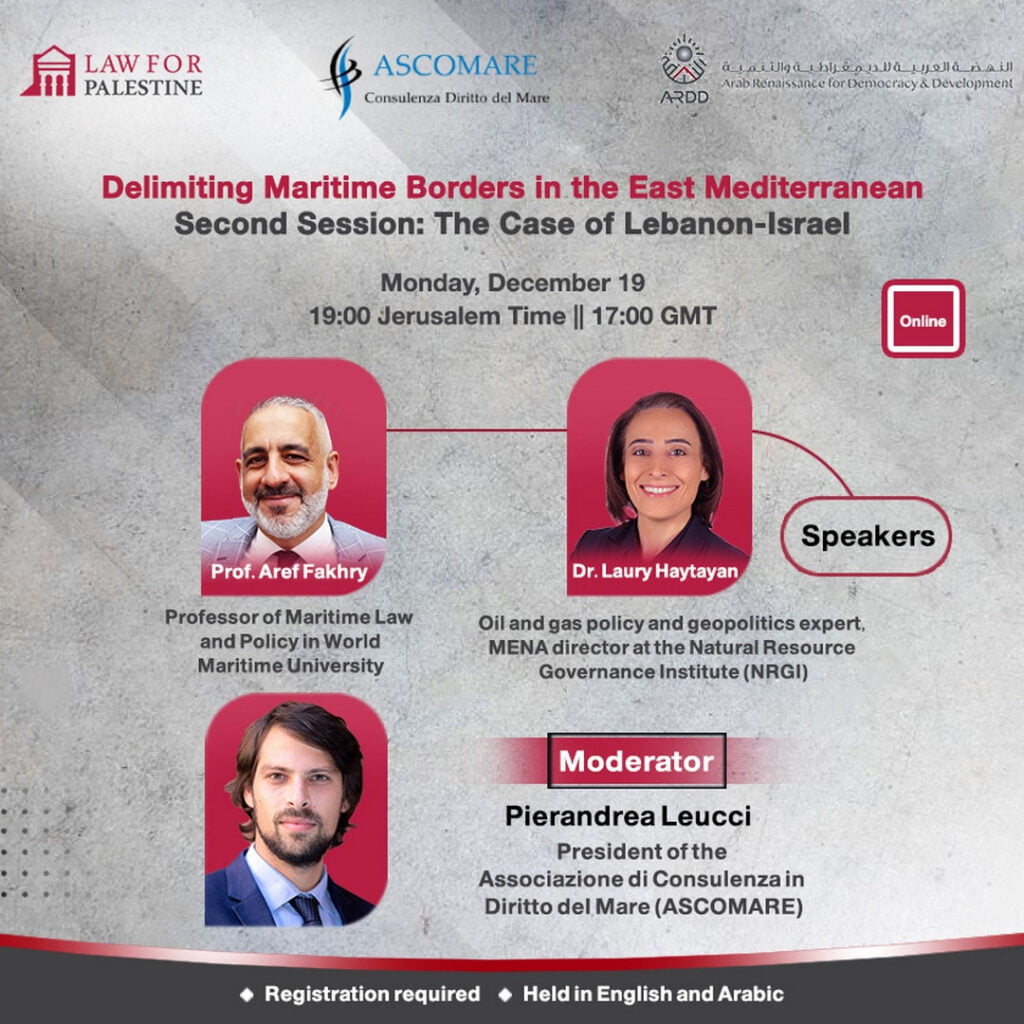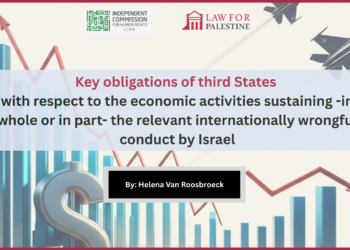Delimiting Maritime Borders in the East Mediterranean: The Case of Palestine – Israel and Lebanon – Israel
Jurists for Palestine Forum – Season 2
Panel discussion 7 and 8 – Online
December 8 & 19, 2022
19:00-20:30 Jerusalem Time || 17:00 – 18:30 GMT
Register here, click
Background:
Covering a network of maritime and coastal areas stretching for over 1,500,000 square kilometers, with a total population of about 320 million distributed among Greece, Turkey, Cyprus, Turkish Republic of Northern Cyprus (TRNC), Lebanon, Israel, Syrian Arab Republic (Syria), Egypt, Palestine, and Libya, the Eastern Mediterranean Sea (EMS) region is an important cultural, socio-economic and ecological hub.
40 years have passed since the conclusion of the Third UN Conference on the Law of the Sea resulting in the opening for signature of the UN Convention on the Law of the Sea (UNCLOS), on 10 December 1982. The Convention codifies and develops a new law of the sea architecture, which is built on the principles of peace, security, cooperation and friendly relations among all nations, for the purposes of establishing “a legal order for the seas and oceans.” A powerful and ambitious goal that, to date, has been formally endorsed by 168 contracting parties – including Lebanon (1995) and Palestine (2015) – and, to different extents, by other States who, despite having opposed the ratification of UNCLOS, accept most of its text as reflecting rules of customary international law.
One of the major achievements of UNCLOS consisted in the adoption of rules and procedures for the delimitation of maritime boundaries between States with adjacent or opposite coasts, as encapsulated in Articles 15, 74 and 83 of the Convention, and in its Part XV (“Settlement of Disputes”). These provisions are reinforced by a methodology progressively developed in the case-law of international courts and tribunals, which strives to ensure a certain degree of predictability in the maritime delimitation process, while leaving States the possibility to settle their maritime boundary disputes by other means, in accordance with Article 33 of the UN Charter.
Despite the significant contribution of UNCLOS, and the progress made by Mediterranean rim States to negotiate an equitable solution for the delimitation of their maritime borders, the EMS region remains an important hotspot of unsettled overlapping claims and entitlements. This is also due to the political and diplomatic tensions mounting among some of its regional actors, inter alia, concerning the use of maritime spaces and resources.
Two important examples of unsettled maritime boundary disputes in the EMS region are the ones between Palestine and Israel, and Lebanon and Israel, respectively; although, major progress in the settlement of the latter have been made on October 11, when the governments of two States announced consensus on a historic boundary agreement to delimit the area of the Qana and Karish gas fields, also thanks to the diplomatic intercession of the United States government.
Against this backdrop, this webinar, gathering international lawyers, experts and NGOs directly involved and having a first-hand experience with the issue at stake, aims to examine and discuss the different positions of Palestine and Lebanon on maritime boundary delimitation in the EMS, with the objective to identify a range of possible solutions to facilitate the negotiation of an equitable solution for all parties, consistent with international law, which will allow to further maritime peace and security in the region.
Associazione di Consulenza in Diritto del Mare (ASCOMARE), on behalf of the Consortium for the Study of Maritime Affairs and the Blue Economy (CONSMAR), also including the Ankara National Center for the Sea and Maritime Law (DEHUKAM), the Centro interdipartimentale di Ricerca sull’Adriatico e il Mediterraneo (CiRAM), and the International Center for Ocean Governance (ICOG) of the Western Sydney University, and in collaboration with Law for Palestine and ARDD are organizing a webinar on: Delimiting Maritime Borders in the East Mediterranean: The Case of Palestine-Israel and Lebanon-Israel
| First Session: The case of Palestine/Israel || December 8, 2022. 19:00 – 20:30 Jerusalem time (17:00 – 18:30 GMT)
Second Session: The case of Lebanon-Israel: December 19, 2022. 19:00 – 20:30 Jerusalem time (17:00 – 18:30 GMT)
|
Where: online via Zoom
Language: English & Arabic. Simultaneous interpretation provided.
Register here to get the zoom link, click
* You may also watch the event live on YouTube:
– Here (click) is the recording of the first session – Palestine/Israel
– Here (click) is the recording of the second session – Lebanon/Israel







